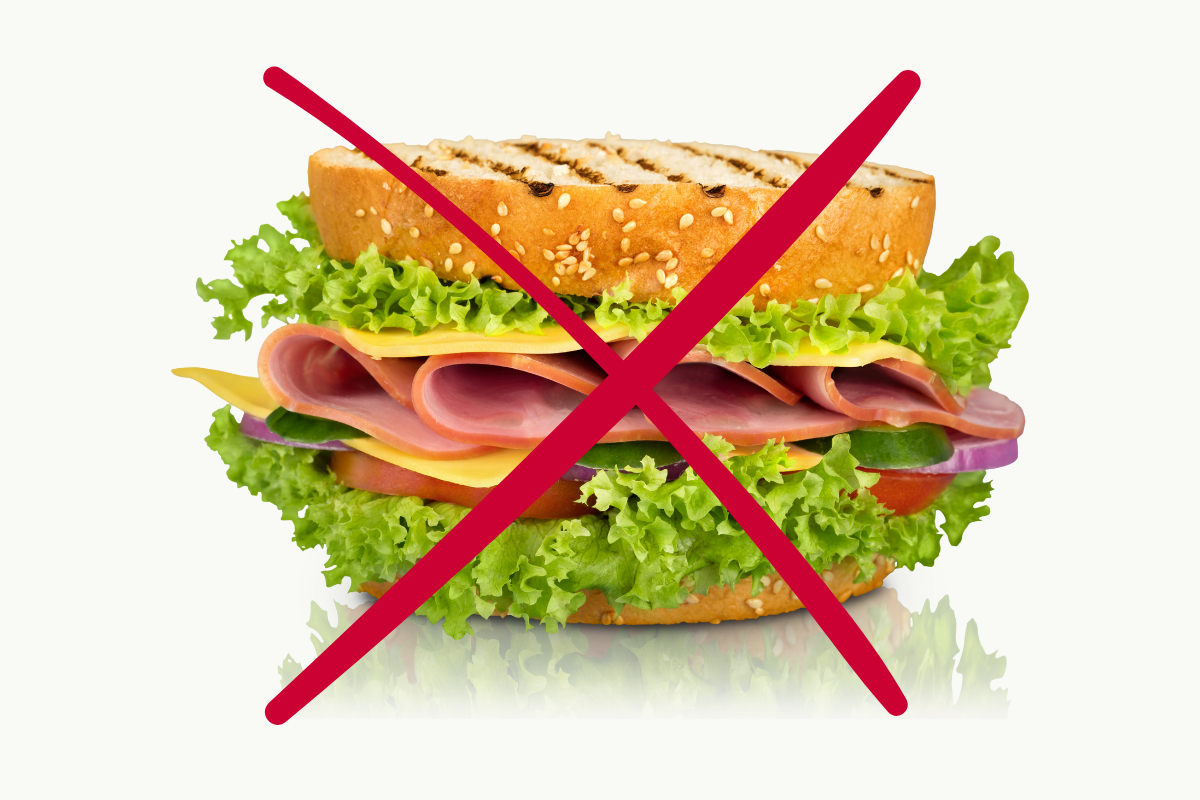If you ever needed another reason to ditch the bacon and hot dogs and dump the charcuterie board loaded with deli meats, know this: A major long-term health study has shown that the risk of developing dementia rose by 14 percent among adults who eat two servings of processed red meat a week.
Worse, the study found an even higher risk of dementia connected to each additional serving of meat, “which could be two slices of bacon, one hot dog, two small links of sausage or kielbasa, and salami, bologna or other processed meat sandwiches,” reports CNN.
The good—if not unsurprising—news? The risk for dementia dropped by 20 percent for people who replaced that daily serving of processed red meat with a daily serving of nuts and legumes, according to an abstract of the study presented at the 2024 Alzheimer’s Association International Conference in Philadelphia on July 31.
These dramatic new findings are from the landmark Nurses’ Health Study, which has tracked health and dietary data of 130,000 participants for more than three decades. A similar project, the Health Professionals Follow-Up Study, investigates the same long-term risk factors for major chronic diseases in men.
“Animals have essential rights not to be considered our food, and at Friends of Animals we press that veganism is a moral imperative. Learning that meat consumption can trigger diseases that damage our brains makers it vividly clear that animal-free diets benefit animals, the environment and also brain health,” said Priscilla Feral, president of Friends of Animals.
In addition to tracking how their intake of processed red meats, participants were also asked how often they ate nuts and legumes, such as 1 tablespoon of peanut butter; 1 ounce of peanuts, walnuts or other nuts; an 8-ounce glass of soy milk; a half cup of string beans, lentils, beans, peas or lima beans; or a typical 3-ounce serving of tofu or soy protein.
A half cup of cooked soybeans provides 14.3 grams of protein, whereas a 3-ounce serving of salami has 12 grams of protein. Salami is loaded with sodium, nitrates and saturated fat. Soybeans contain all nine essential amino acids and are also rich in antioxidants, heart-healthy “good” fats, and plenty of beneficial fiber for digestion and cholesterol health.
Though most people consider peanuts a nut, they are technically a legume and have a similar positive nutritional profile as soybeans. They are a solid source of protein, the fats are mainly healthful monounsaturated and polyunsaturated fatty acids, they’re high in essential minerals like iron and calcium, and boast a range of the antioxidants, polyphenols and flavonoids shown to be beneficial to human health.
So, for the sake of your own health and that of the planet, we ask you to stop consuming animals for food.

